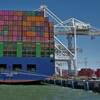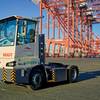Drewry: Capesize Charter Rates to Go Up
Drewry maintains a positive outlook on the dry bulk market and expects charter rates to improve from current levels, driven by moderate increases in vessel demand and low growth in vessel supply as a result of restrained new ordering and a thin orderbook, according to the latest edition of the Dry Bulk Forecaster, published by global shipping consultancy Drewry.
The uncertainty surrounding the dry bulk market, driven by trade wars could, nonetheless, slow down the increase in charter rates. A game of tariffs and counter- tariffs is underway with US at the centre of most of the tussles and it seems unlikely that trade wrangles will end soon.
But trade wars might not have a direct negative impact on dry bulk trade. The US constitutes a small share of China’s total steel product exports and as far as Chinese soybean imports are concerned, Drewry estimates that volumes will remain unchanged. In fact, any shift of Chinese soybean imports away from US to Brazil will result in increased tonne- mile demand.
“Though we expect trade wars not to have a direct negative impact on the dry bulk trade, there exists a possibility that they might adversely affect the Chinese economy. The US is China’s largest trading partner, accounting for around 18% of total Chinese merchandise exports, in terms of value. High tariffs will hurt China’s exports and impact its GDP growth, and in turn instigate a slowdown in its industrial activity, which will undermine the country’s steel consumption,” commented Rahul Sharan, Drewry’s lead analyst for dry bulk shipping.
A slowdown in steel production will directly dampen iron ore and coking coal imports. “Since China constitutes a the lion’s share of the global iron ore trade (around 70%), Capesize and VLOC charter rates will be heavily influenced by a trade war and recovery in charter rates will slow down,” added Sharan.













